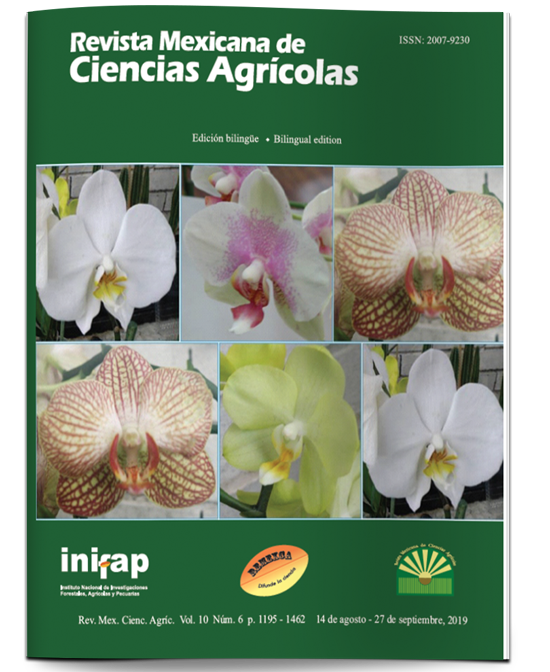New matK initiators for life barcode in species of the genus Dasylirion
DOI:
https://doi.org/10.29312/remexca.v10i6.1684Keywords:
Dasylirion, arid zones, identification, oligonucleotides, sotolAbstract
Dasylirion species are among the most important in the Chihuahuan Desert in ecological and economic terms. Its main use is the elaboration of a traditional alcoholic beverage called sotol. The genus comprises 22 species, not all suitable for this purpose and their identification is difficult. Molecular tools such as the barcode of life facilitate their identification and generate genetic information. There are universal primers for the matK gene, whose sequence is appropriate for life's barcode, which do not work for some species of this genus. The difference of a single nucleotide can cause problems in amplification. The objective of this work was to design and test new initiating sequences of the matK gene, which allow amplification in plants of the genus Dasylirion. The Primer3 Plus, FastPCR and the complete sequence of the matK gene of D. wheeleri were used for the design. The new oligonucleotides were tested with the species D. texanum, D. leiophyllum, D. occidentalis and D. palaciosii, with clean amplification of the matK gene (approximately 1 000 bp fragment) in each of them. These results contrasted with those obtained from the universal primers matK 390F and matK 1 326R, which generated secondary bands or failed amplification. Since the new initiators successfully amplified the matK gene in the studied species of Dasylirion, they are considered of value as tools for obtaining the barcode of life in sotol. Research conducted during the years 2016 to 2018.
Downloads
Downloads
Published
How to Cite
Issue
Section
License
The authors who publish in Revista Mexicana de Ciencias Agrícolas accept the following conditions:
In accordance with copyright laws, Revista Mexicana de Ciencias Agrícolas recognizes and respects the authors’ moral right and ownership of property rights which will be transferred to the journal for dissemination in open access. Invariably, all the authors have to sign a letter of transfer of property rights and of originality of the article to Instituto Nacional de Investigaciones Forestales, Agrícolas y Pecuarias (INIFAP) [National Institute of Forestry, Agricultural and Livestock Research]. The author(s) must pay a fee for the reception of articles before proceeding to editorial review.
All the texts published by Revista Mexicana de Ciencias Agrícolas —with no exception— are distributed under a Creative Commons License Attribution-NonCommercial 4.0 International (CC BY-NC 4.0), which allows third parties to use the publication as long as the work’s authorship and its first publication in this journal are mentioned.
The author(s) can enter into independent and additional contractual agreements for the nonexclusive distribution of the version of the article published in Revista Mexicana de Ciencias Agrícolas (for example include it into an institutional repository or publish it in a book) as long as it is clearly and explicitly indicated that the work was published for the first time in Revista Mexicana de Ciencias Agrícolas.
For all the above, the authors shall send the Letter-transfer of Property Rights for the first publication duly filled in and signed by the author(s). This form must be sent as a PDF file to: revista_atm@yahoo.com.mx; cienciasagricola@inifap.gob.mx; remexca2017@gmail.
This work is licensed under a Creative Commons Attribution-Noncommercial 4.0 International license.



